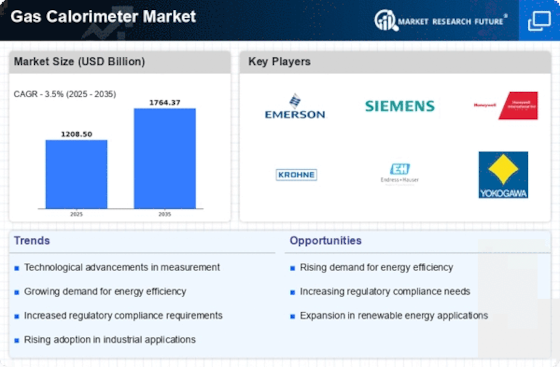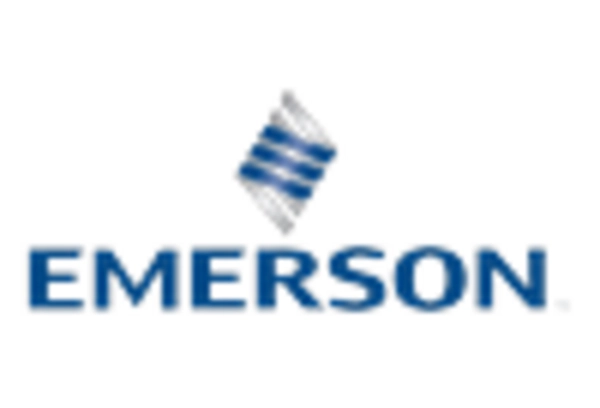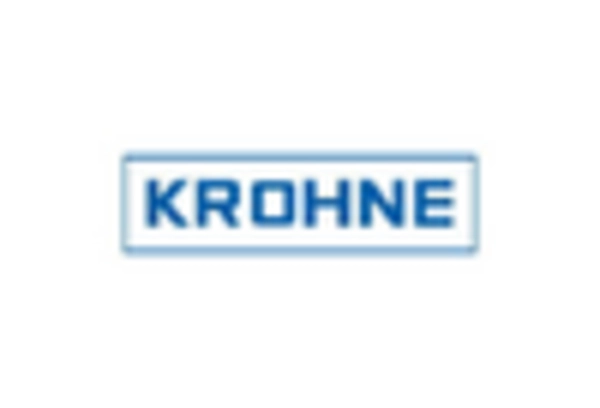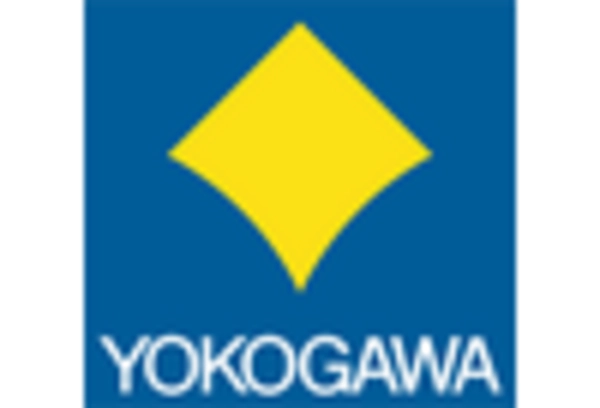Market Share
Gas Calorimeter Market Share Analysis
The global population is projected to surge from 7.3 billion in 2015 to an estimated 9.2 billion by 2040, marking an increase of about 1.8 billion individuals mainly concentrated in developing nations. This exponential population growth is anticipated to become a driving force behind the escalating demand for power generation worldwide. Illustrated in the graph below, the expected growth in energy generation from oil and gas stands at 16.42% and 57.43%, respectively, spanning the period from 2015 to 2040.
Additionally, the surge in demand for oil and gas across various sectors like transportation, household appliances, and industrial machinery is poised to escalate significantly in the forecasted timeframe. Such trends serve as catalysts prompting substantial investments from both governmental bodies and private enterprises, particularly in burgeoning economies. For example, the Government of India's Ministry of Petroleum and Natural Gas anticipates foreign investments worth USD 300 billion in various projects, aiming to curtail oil import dependence by 10% by 2022.
Gas calorimeters play a pivotal role within the oil and gas industry, extensively employed in measuring and regulating the calorific value or Wobbe Index (WI) of sample gases. These instruments are instrumental in determining fuel calorific values or emission factors, monitoring physical alterations, temperature fluctuations, and other pertinent factors, facilitating the acquisition and analysis of critical data.
Forecasts anticipate a surge in demand for gas calorimeters spurred by the burgeoning oil and gas industry. Although the current growth rate of gas calorimeters within the oil and gas sector remains moderate, projections indicate an impending uptick in demand during the forecast period. Consequently, the evolution of the oil and gas industry is expected to catalyze an escalation in the demand for gas calorimeters, shifting the impact from a moderate level to a high trajectory over the forecast period.
The concurrent expansion of the oil and gas industry and the integration of gas calorimeters within this sector depict a trend currently categorized as moderate growth. However, as the demand for these instruments intensifies within the oil and gas domain, the trajectory is expected to undergo a notable acceleration, transitioning from moderate impact to a heightened influence on the global gas calorimeter market in the foreseeable future.


















Leave a Comment